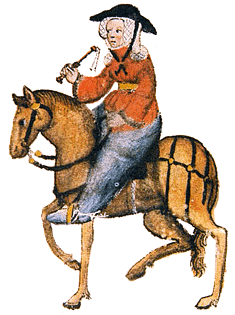So there is this Greek play called Lysistrata, written about 400 BC by Aristophanes. The play is about
a strong female character, named Lysistrata who is so upset by the
Peloponnesian War she tries to find a way for the women of Greece to end the
war since the men seem unable. And what do men love more than anything else???
SEX, of course. Lysistrata convinces the Greek women to withhold sex from their
husbands until the war has ended. This is a comedy, so of course hilarity
ensues. The one thing Lysistrata fails to realize is that women crave and need
sex just as bad as their husbands.
This play has been critically thought of as a feminist war,
a first of its kind for that time period, since like Chaucer’s era women were
things and not really people to have any kind of influence.
So is Aristophanes just making fun of woman? Is Chaucer just
making fun of women with his tale of the Wife of Bath? Are these authors’
pioneers of women’s rights by writing about strong, influential, and smart
female characters?
Personally, I feel both authors wrote their respective strong
willed female characters to amp up the hilarity of their writings. Unintentionally,
I feel they also pioneered feminist thoughts. I’m sure educated females heard
about these characters and realized the strength women can have, even when
all she has is her body.

Wife of Bath: http://www.luminarium.org/medlit/wife.gif













